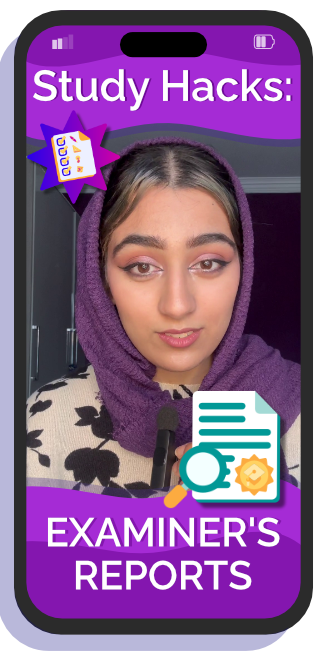Resource Pack: Study Hacks
Studying effectively is about more than just putting in the hours - it’s about using the right strategies to retain information, stay focused, and manage exam pressure.
Whether you’re helping students refine their revision techniques or supporting those who struggle to stay on track, this Resource Pack will equip them with practical strategies to study smarter, not harder. With the right approach, they can boost their confidence and maximise their learning potential.
Preview
Watch a preview of 'Study Hacks: Focus’ - a video designed to help learners of all ages improve concentration and stay on task.
This video by Sunny introduces the Pomodoro method, a simple but effective study technique that breaks work into manageable focus sessions. By working in short bursts with regular breaks, students can boost concentration and make studying feel less overwhelming. Share this with them and encourage them to give it a try - it might just change the way they approach their revision!
Got Peerscroller? Scroll down for more resources.
For all year groups Key Stages 3-5
In this video, Evie introduces the Rubber Duck method, a simple but effective technique to help students process complex concepts. By encouraging them to explain what they’re learning to an inanimate object (like a rubber duck or teddy bear), students can slow down, rethink the material, and gain fresh insight!
This video by Aisha explores Blurting, a simple, effective way to help students strengthen recall skills. Instead of passive reading, blurting forces active engagement - helping students identify gaps, reinforce knowledge, and build confidence. Whether used as a warm-up, a revision tool, or a way to break up longer sessions, blurting makes learning stick.
Part 1/2. Do your students struggle to take in what they read? This video explores active reading techniques to improve comprehension and retention. It covers key strategies like highlighting important words, making annotations, and reading aloud to engage with texts more effectively.
Part 2/2. Expanding on part one, this video introduces three more techniques: using signposts to navigate information, thinking critically about the text’s purpose, and summarising in your own words. These strategies help students break down complex texts and enhance understanding in tutoring sessions.
For Key Stages 3-4
In this video, we dive into the Eisenhower Matrix, where tasks are sorted into four simple groups. By helping students use this matrix, you can guide them to sort their to-do lists like a pro, tackle priorities head-on, and avoid the overwhelm of feeling like they’re drowning in tasks. It’s all about working smarter, not harder!
Past papers are a goldmine for effective revision, but many students don’t know how to really make the most of them. This video by Dan breaks it down in a way that’s simple, engaging, and practical -helping learners see past papers as more than just another test. Perfect for tutors looking to boost their students’ confidence and exam technique!
For Key Stages 4-5
This video helps learners conquer those “meh” topics that just don’t excite them! It encourages students to think about why certain topics are important, whether it’s for future careers or building skills they can use elsewhere. By getting them to dig into what makes a topic boring, they might uncover a hidden gem of interest!
Examiner’s reports are a seriously underrated revision tool, and this video helps students unlock their full potential. Instead of just guessing where they went wrong, they can see exactly what examiners look for - and what common mistakes to avoid. It’s a game-changer for fine-tuning exam technique, especially for structured questions where small tweaks can mean big mark boosts!
Mind maps aren’t just pretty diagrams - they’re a powerhouse revision tool, and this video by Amelie shows learners how to use them properly. By breaking down big topics into bite-sized, interconnected ideas, mind maps help students see the links between concepts rather than memorising facts in isolation.














